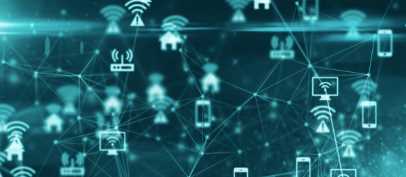The Internet of Things (IoT) has transformed the way we interact with technology, connecting a vast array of devices and systems. While IoT offers incredible convenience and efficiency, it also raises significant ethical concerns regarding privacy, consent, and data ownership. This blog explores the ethical considerations associated with IoT and highlights the importance of addressing these issues to ensure responsible and ethical use of connected devices.
Privacy and Data Protection
IoT devices collect a vast amount of data about individuals, ranging from personal information to behavioral patterns. The ethical question arises regarding how this data is collected, used, and protected. It is crucial to implement strong privacy measures and data protection protocols to safeguard individuals' personal information. Encryption, access controls, and anonymization techniques should be employed to minimize the risk of unauthorized access and data breaches.
Informed Consent
Obtaining informed consent is a critical ethical consideration in IoT. Users should have a clear understanding of what data is being collected, how it will be used, and who will have access to it. Consent should be obtained in a transparent and easily understandable manner, ensuring that individuals have the choice to opt-in or opt-out of data collection and sharing practices. Clear and concise privacy policies should be provided, outlining the purpose and scope of data collection.
Data Ownership and Control
IoT raises questions about data ownership and control. Individuals should have the right to own and control their personal data collected by IoT devices. They should have the ability to access their data, request its deletion, and have control over how it is shared and used. IoT service providers and manufacturers should establish mechanisms that empower individuals to exercise control and ownership over their data.
Security and Vulnerability Management
Ethical considerations in IoT extend to ensuring the security of connected devices and systems. IoT devices can be vulnerable to cyber-attacks, leading to privacy breaches and potential harm to individuals. It is essential for manufacturers to implement robust security measures, regularly update firmware and software, and provide timely security patches to address vulnerabilities. This ensures the protection of individuals' privacy and prevents malicious exploitation of IoT devices.
Transparency and Accountability
Transparency and accountability are vital in maintaining trust and ethical standards in IoT. Companies should be transparent about their data collection and usage practices, ensuring that individuals have visibility into how their data is being handled. Establishing accountability mechanisms and conducting regular audits can help ensure compliance with privacy regulations and ethical guidelines.
Ethical Use of Data
IoT-generated data has immense value and potential for various applications, including research, marketing, and improving services. However, ethical considerations must be at the forefront when utilizing this data. It is essential to use data in a responsible, ethical, and non-discriminatory manner, avoiding bias or unfair practices that may result in harm or discrimination against individuals or communities.
Minimization of Data Collection
To uphold ethical principles, IoT systems should follow the principle of data minimization. Collecting only the necessary data for the intended purpose helps minimize privacy risks and reduces the potential for unauthorized use or abuse of personal information. Manufacturers and service providers should adopt a privacy-by-design approach, ensuring that data collection is purposeful, limited, and aligned with individuals' expectations.
Continuous Monitoring and Compliance
Ethical considerations in IoT require ongoing monitoring and compliance efforts. Regular assessments and audits should be conducted to evaluate data privacy practices, security measures, and compliance with ethical standards and regulations. This proactive approach helps identify and rectify any ethical shortcomings and ensures that IoT systems adhere to the highest ethical standards.
Conclusion
IoT presents tremendous opportunities but also raises significant ethical considerations. Privacy protection, informed consent, data ownership, and ethical use of data should be at the forefront of IoT development and deployment. By addressing these concerns and implementing robust privacy and security measures, we can foster a responsible and ethical IoT ecosystem that respects individuals' privacy, empowers them with control over their data, and ensures the trustworthy use of connected devices.




Leave Comment